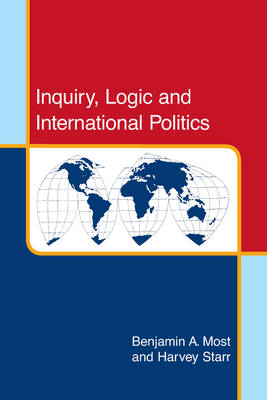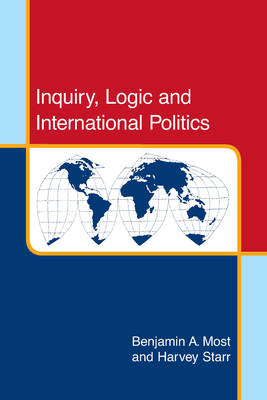
- Retrait gratuit dans votre magasin Club
- 7.000.000 titres dans notre catalogue
- Payer en toute sécurité
- Toujours un magasin près de chez vous
- Retrait gratuit dans votre magasin Club
- 7.000.0000 titres dans notre catalogue
- Payer en toute sécurité
- Toujours un magasin près de chez vous
Description
Through the use of logic, simulation, and empirical data, Most and Starr develop and demonstrate a new and more appropriate conceptualization of explanation in international relations and foreign policy. They demonstrate that a concern with the logical underpinnings of research raises a series of theoretical, conceptual and epistemological issues that must be addressed if theory and research are to meet the challenges of cumulation in the study of international relations. The authors argue for understanding the critical, yet subtle, interplay of the elements within a research triad composed of theory, logic and method.
Spécifications
Parties prenantes
- Auteur(s) :
- Editeur:
Contenu
- Nombre de pages :
- 268
- Langue:
- Anglais
- Collection :
Caractéristiques
- EAN:
- 9780872496309
- Date de parution :
- 01-01-89
- Format:
- Livre broché
- Format numérique:
- Trade paperback (VS)
- Dimensions :
- 149 mm x 223 mm
- Poids :
- 412 g

Les avis
Nous publions uniquement les avis qui respectent les conditions requises. Consultez nos conditions pour les avis.






